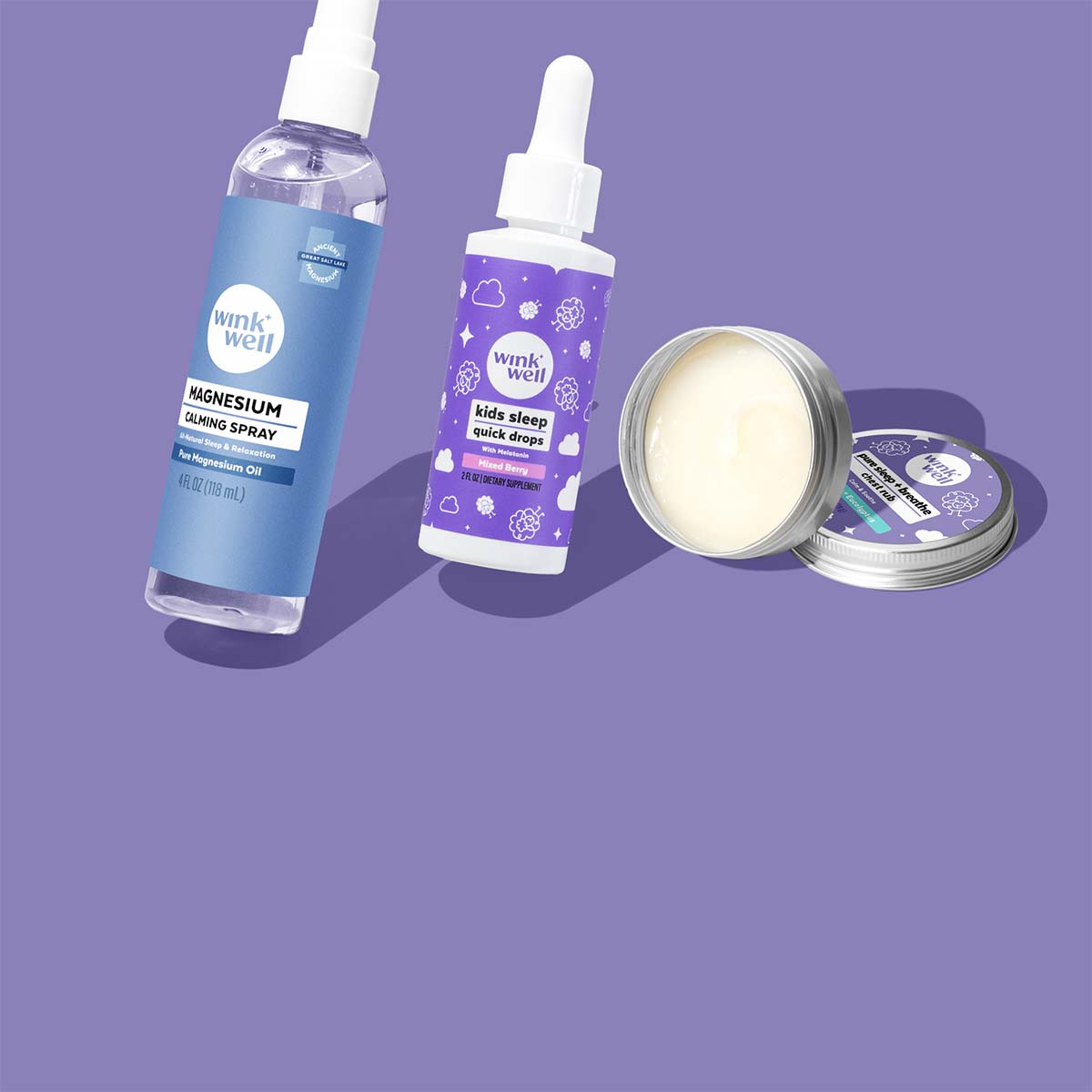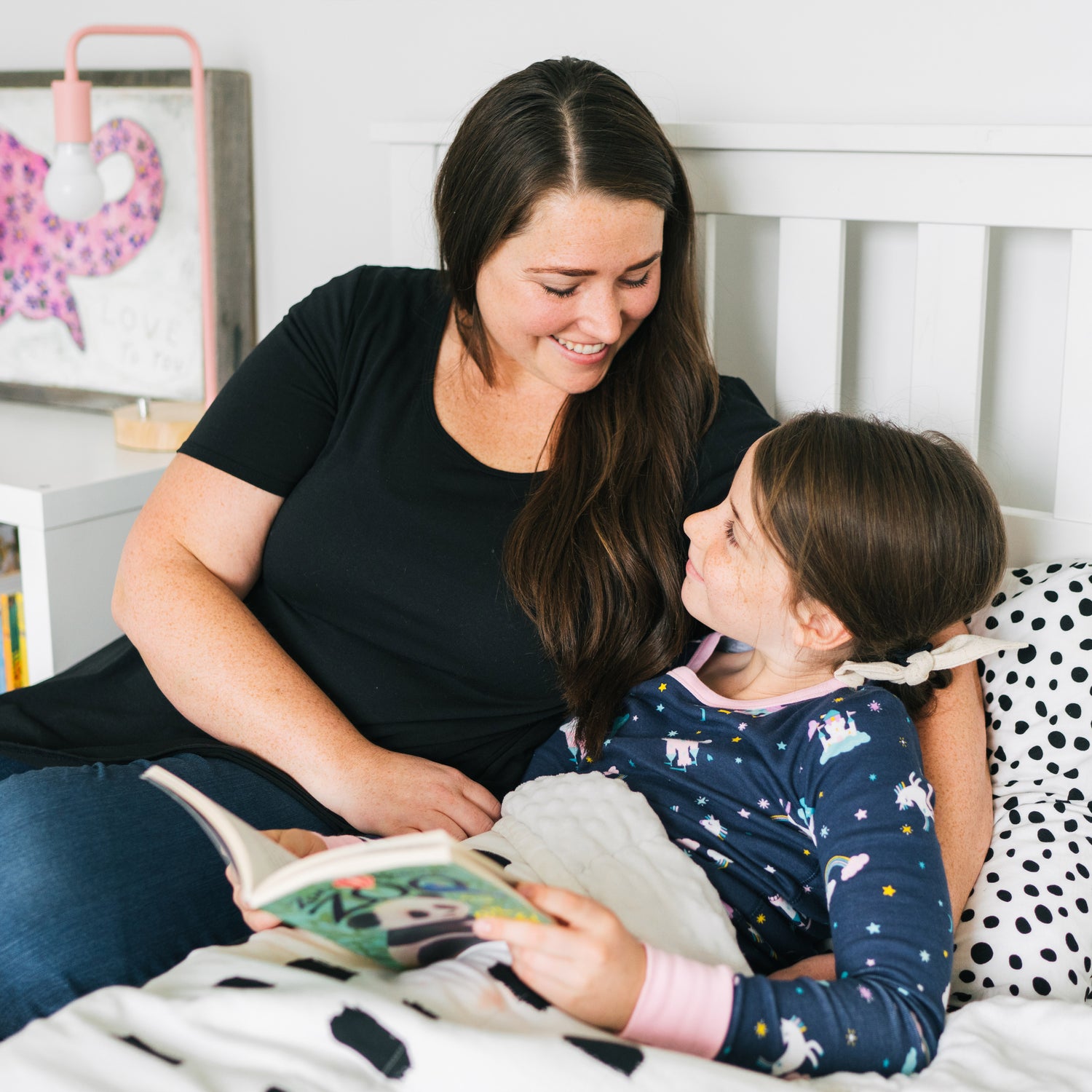If you’ve ever been desperate for sleep, then you’ve probably heard about melatonin. Some people swear by it while others still don’t quite understand what the big deal is!
We are here to answer some top melatonin questions that we hear daily.
What is Melatonin?
Melatonin is a naturally occurring hormone that is produced in your brain and GI tract! Triggered by darkness, it helps control your daily sleep-wake cycles. In other words, the release of melatonin helps let your body know that it’s time to sleep. It also acts as an antioxidant.
When you are exposed to light at night (like phones, computers, and tv) you can block melatonin production thus messing up your ability to fall asleep.

Is Melatonin habit-forming?
Melatonin is non-habit forming! But that doesn’t mean that it’s a free-for-all either. As mentioned, melatonin is naturally made within the body, but the dosing of melatonin is important (we will get into specifics later). Too much and you could have adverse effects and too little and you could have little to no effects.
What are the best uses of Melatonin?
Melatonin is popularly used to help people get their sleep-wake cycle back in check:
- Shift workers with inconsistent sleep times
- People with jet lag
- People who are blind
- Children with developmental disorders
But can also be used to help to promote safe sleep for kids and adults.
Recent surveys have found that adults spend about 11 hours a day staring at some kind of screen.
Not only does that affect your ability to fall asleep but it can come with other negative effects:
- Sedentary lifestyle (which can lead to obesity and other problems)
- Eye strain and headaches
- Neck, back, and shoulder pain
- Social media addiction
Surveys have found that children spend on average 5-7 hours watching a screen a day! During a time when children are developing so rapidly, this amount of screentime can have lots of long-term effects (beyond sleep issues).
It’s clear that both adults and children spend a large amount of time staring at screens and could be having a hard time falling asleep. The proper use of melatonin can help them create a new nighttime routine to set them up for sleep success.
What should I look for in a Melatonin supplement?
If you head to your local store to find some melatonin you will likely be overwhelmed with your options. Here are a few things to look out for:
- Added sugars. When you’re trying to fall asleep you want to avoid bad sugars!
- Melatonin form. Pill, melt, liquid. Make sure you look at the best form for the user. If your child is super picky, they might want liquid melatonin in their drink before bedtime.
- Dosage. Melatonin is recommended in smaller amounts to start. Look for options where you can lower the dosage (droppers or melts) and/or come in lower dosage amounts (1 mg to 3mg).
How much Melatonin can my child take? How much Melatonin should an adult take?
Dosage can vary from person to person but there are general recommendations for dosage for adults and children based on research.
Melatonin recommendation for children: 0.2 mg to 1 mg is a good starting point. Most children don’t need more than 3 to 6 mg of melatonin. Be sure to talk with your child’s pediatrician if you have additional questions.
Melatonin recommendation for adults: 0.2 mg to 5 mg is a typical starting point. It’s always a good idea to start off with a small dose and slowly work up to find what’s effective for you.
The amount of melatonin needed to help you sleep will vary based on your personal needs (falling asleep, jet lag, etc.).
What are the benefits of Melatonin?
Some benefits of melatonin include:
- Help with delayed sleep phase syndrome (falling asleep faster).
- Help improve sleep in children and adults who are blind.
- Help with jet lag.
- Help with sunburn (when using melatonin gel directly on the skin).
- And lots more.
What’s the best way to use Melatonin?
If you’re looking to get a good night’s rest then taking melatonin is just the icing on the cake. Setting up some healthy sleep habits will be what’s most important:
- Set a consistent sleep schedule, go to bed and wake up at the same time every day.
- Create consistent bedtime rituals.
- Try avoiding electronics an hour or two before bed (the blue light can trick our brains into thinking it’s time to wake up instead of sleep).
- Dim the lights in your room or even your house as you start to wind down.
- Limit caffeine.
- Take melatonin 30 minutes before bedtime.
- Take melatonin consistently for the best results.
Are there any side effects of Melatonin?
Of course, there are the main side effects of sleepiness or drowsiness but that’s typical with a sleep aid. That is the kind of side effect you want!
If you notice other side effects you might want to talk to your doctor. They’ll look at other medications or supplements you’re taking as well as changing your dosage.
Getting Your Zzzzz’s with Melatonin
More than 1 in 3 adults aren’t getting enough sleep. Add in babies, kids, jobs, life, your diet, and anything else you can think of and it’s no wonder that number is so high.
Finding more “natural” ways to sleep better is always a top option in our book. That’s why we are big fans of melatonin. With melatonin naturally being produced in the body, we feel it’s a great natural sleep aid.
Reasons we love melatonin: fall asleep faster, wake up refreshed, non-habit forming, minimal side effects, and our kiddos can use it too!
Hopefully, you have a better understanding of melatonin and how it can help you get the sleep you need!







Leave a comment
All comments are moderated before being published.
This site is protected by hCaptcha and the hCaptcha Privacy Policy and Terms of Service apply.